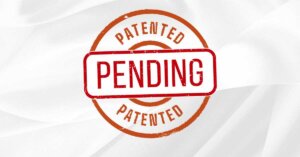Patent Pooling and its harmonization with competition law in Indonesia
Patent Pooling can be defined as an agreement between two or more patent owners to license their patent to one another or to third party. The agreement is a License Agreement. Frequently, Patent Pooling is linked to complex technologies which require a complementary to provide an efficient technical solution. Generally, Patent Pooling covers a mature technology. Patent pooling also represent basic industrial standard that supplies companies with a required technology for developing a compatible products and services. In that case, they often provide more attention to an under developed technology.
Patent pooling has been a discussion subject from a law and economic perspective. On the other hand, patent pooling may have a positive impact on competition and innovation. By haring of an intellectual property assets, companies would develop new product and reduce transactional cost. However, on certain circumstances, patent pooling could allow an anti-competitive treatment, such as cooperation with competitor which causes an inherent collusive behavior.
In Indonesia, Indonesian Competition Commission enacted an Indonesian Competition Commission Regulation Number 2/2009 regarding The Exclusion Guidelines for the Application of Law Number 5/1999 Regarding the Prohibition of Monopolistic Practices and Unfair Business Competition against Agreements Related to Intellectual Property Rights. The preparation of this guideline is given the importance of the provisions of Article 50 letter b which is the harmonization between the IPR regime and the business competition law. This article regulates the exception to Law Number 5 Year 1999, which reads:
“Agreement related to Intellectual Property such as license, patent, trademark, copyright, industrial product design, integrated electronic circuit, trade secrets, and a franchise related agreement.”
An exception is only applies to license agreement. The above exclusion guidelines, includes the steps to analyze whether a license agreement would be considered as an intellectual property agreement that can be excluded from Law Number 5/1999:
- Pooling Licensing and Cross Licensing
Pooling licensing is cooperation between businesses and their business partner to compile intellectual property licenses towards a certain product component. Cross licensing is a mutual gathering action an intellectual property between businesses and their business partner that usually done with Research and Development (R&D).
To analyze whether or not a license agreement carries an anti-competitive quality, we must know that licensor are possible to pooling license and cross licensing. However, if such action causing the production or the marketing of a certain product is dominantly managed by a certain business, that license agreement may be regarded as having the quality of anti-competitive.
- Tying Arrangement
In principle, a licensor may combine two or more of his products Protected in ntellectual property to be traded. However, consumers should be provided with a choice to purchase one product only.
If a license agreement contains a clause causing a licensee have to sell a product as one unit, which makes the consumer cannot purchase one product only, that agreement may be regarded as anti-competitive.
- Raw materials restrictions
A licensor is possible to give restrictions to licensee regarding raw materials used. That action regarded necessary to maximize technological function, keeping safeness, and to prevent secret leaks. However, restriction towards raw materials supplier may potentially cause lack of freedom for licensee to select the quality of raw materials and supplier and make the implementation of the license agreement is inefficient.
If a license agreement contain restriction clause that impacts the licensee to use technology ineffectively, that restrictions may eliminate competitors from trade opportunity and surely causes a disadvantage to other party. And that clause may be regarded as anti-competitive.
- Production and sales restrictions
A licensor may establish a restriction towards trade location or the amount of manufactured product using the technology owned by licensee. However, restriction is not allowed if it forbids licensee to explore a technological innovation. Therefore the clause that makes a licensee unable to innovate on the technology so that product development is inefficient can be seen as anti-competitive.
- Sale and resale price restrictions
A licensor may decide in what price their product would possibly marketed, in accordance with product investment. On the other hand, price restriction may potentially cause a limitation to business between licensee and distributors which affect to reduce competition and making the product development inefficient.
Therefore, license agreement contains restrictions of sale and resale price by setting down prices can be seen as anti-competitive.
- Grant-back
Grant-back is a license agreement clause where a licensee is having the condition to always transfer information to licensor regarding all of the improvement and development that provided towards licensed products.
This action could potentially obstructs the licensee to obtain progress in technological mastery and it also contains an unfair element because it legitimates licensor to constantly holding rights to an intellectual work that he did not produce himself. Therefore, a license agreement that contains a grant-back obligation may be regarded as anti-competitive.
Sources:
- WIPO, Patent Pools and Antitrust—A comparative analysis, 2014
- Peraturan Komisi Pengawas Persaingan Usaha Republik Indonesia Nomor 2 Tahun 2009 tentang Pengecualian Penerapan Undang-Undang Nomor 5 Tahun 1999 tentang Larangan Praktik Monopoli dan Persaingan Usaha Tidak Sehat terhadap perjanjian yang berkaitan dengan hak atas kekayaan intelektual.






